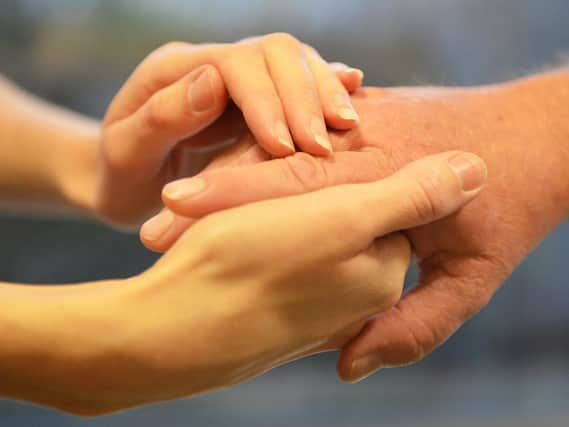Loneliness in pandemic increased in winter lockdown as young people worst hit


Some 7.2 per cent of adults said they felt lonely “often” or “always” between October 2020 and February 2021, according to the Office for National Statistics (ONS).
This is the equivalent of around 3.7 million people – up from 2.6m, or 5.0 per cent of the population, between April and May 2020.
Advertisement
Hide AdAdvertisement
Hide AdIn Yorkshire, Scarborough and the surrounding area saw some of the highest levels of loneliness, with 10.8 per cent of people saying they often or always feel lonely.
Hull had the region’s highest levels with 12.5 per cent.
Rates were also higher than the national average in Selby, York, Bradford and Wakefield.
The ONS said places with a lower average age have generally experienced higher rates of loneliness during the pandemic, and that “higher rates of loneliness reported by young people are particularly associated with urban areas outside London”.
Living in a single-person household, difficulties with relationships caused by the pandemic, and not having anyone to talk to have also contributed to experiences of loneliness.
Advertisement
Hide AdAdvertisement
Hide AdFigures for individual local authorities, where the sample size was large enough to ensure reliable estimates, show Tameside (15.1 per cent), Leicester (14.3per cent) and Stoke-on-Trent (13.7 per cent) as having the highest loneliness rates in Britain.
During the period October 2020 to February 2021, of those who said their wellbeing had been affected in the last seven days by the pandemic, 38.6% (around 10.5 million people) said it was because they were lonely, the ONS said.
Young people and single people were found to have been most affected by this seven-day measure, or “lockdown loneliness”.
Of those who said their wellbeing had been affected by the pandemic, the odds of someone aged 16 to 24 reporting feeling lonely in the last seven days were around four times greater than someone aged 75 or over, the ONS found.
Advertisement
Hide AdAdvertisement
Hide AdUnemployment was “one of the most important factors” identified by the ONS in their analysis.
Local authority areas with a higher unemployment rate had higher proportions of residents who said they were often or always lonely, while in areas where residents earn more on average per week, loneliness rates tended to be lower.
The Department for Culture, Media and Sport (DCMS) announced a £7.5m fund to tackle loneliness in December last year.
It appointed its first Minister for Loneliness under Theresa May’s premiership, and the role is currently held by Baroness Diana Barran.
Advertisement
Hide AdAdvertisement
Hide AdA Government spokesperson said: "We recognise the impact covid has had on young people, and that they are consistently the group that report the highest levels of loneliness. This is why we've funded the ONS research into youth loneliness and supported the Coop Foundation 'Lonely Not Alone' campaign.
"We have provided more than £60 million to children’s and youth organisations and an unprecedented multi-billion pound package of support has helped charities more widely. We continue to work closely with the sector to direct help where it is needed."
Kim Leadbeater, ambassador for the Jo Cox Foundation, said the pandemic had threatened to undo crucial work on loneliness. She said: “It’s sad but not surprising. Loneliness has increased across the board during lockdown.
“For young people particularly, they’ve had so much of their human connection taken away.
“We need to look seriously at the impact on young people.
“It’s very much on the government’s radar. I think sadly huge amounts of progress was being made prior to lockdown, and lockdown has exacerbated things so much.”